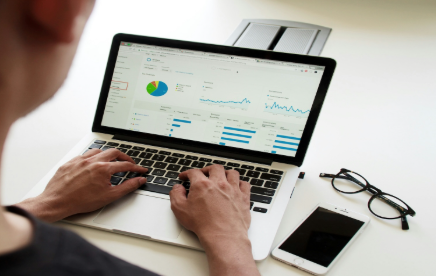How Much Do Accountants in Sydney Charge?
Finding the right accountant is about more than just cost, but understanding typical fees can help you budget and choose a service that meets your needs. Accounting fees in Sydney vary widely depending on the type of service, the complexity of your financial situation, and the level of expertise you require.
Factors That Influence Accounting Fees
Type of Service Required
Accounting fees depend heavily on what you need. A straightforward tax return for an individual will be much cheaper than ongoing business advisory or complex financial planning. Services such as bookkeeping, BAS lodgements, and payroll processing are generally priced differently to high-level consulting or strategic advice.
Experience & Qualifications
A Chartered Accountant (CA) or Certified Practising Accountant (CPA) may charge more than a general bookkeeper, but they bring advanced skills, qualifications, and strategic insights. Industry-specific expertise, such as accountants who specialise in healthcare, hospitality, or e-commerce, can also influence fees.
Business vs Individual Clients
Business accounting tends to be more expensive than individual tax work due to the complexity of financial reporting, compliance requirements, and the volume of transactions involved.
Location & Demand in Sydney
Firms located in Sydney’s CBD often charge higher rates than suburban practices due to higher overheads and demand. However, this isn’t always the case, many boutique firms offer competitive pricing regardless of location.
Common Accounting Fee Structures
Hourly Rates
Some accountants bill by the hour, with Sydney rates typically ranging from $80 to $300+, depending on expertise and service type.
Fixed-Fee Packages
Many accountants offer fixed monthly or annual packages covering a set range of services. This can be cost-effective for small businesses needing regular support.
Project-Based Pricing
For one-off tasks like setting up a business structure, conducting an audit, or preparing a financial plan, accountants may charge a set project fee.
Average Accounting Costs in Sydney
Individual Tax Returns
A simple individual tax return may cost between $150 and $300. More complex returns involving investment properties, capital gains tax, or business income can cost $300 to $600+.
Small Business Services
Basic bookkeeping may start from $300 per month, while comprehensive packages including BAS, payroll, and reporting can range from $500 to $1,500+ per month.
Specialist Services
SMSF administration can range from $2,000 to $4,000 annually, while audits and compliance services are often quoted individually based on scope.
Ways to Reduce Your Accounting Costs
Keeping accurate records and organising your financial documents before handing them to your accountant can save significant time (and therefore money). Using cloud-based accounting software like Xero or MYOB allows for seamless data sharing and reduces manual work.
It’s also worth consulting with experienced professionals like accountants Sydney who can recommend the most cost-effective service package for your situation. By clearly defining your needs upfront, you can avoid paying for services you don’t actually require.
Why the Cheapest Option Isn’t Always Best
While it’s tempting to choose the lowest quote, poor-quality advice or incorrect lodgements can cost you far more in the long run. Penalties, missed deductions, and inefficient structures are common pitfalls of working with underqualified providers.
Choosing the Right Accountant in Sydney
Look for an accountant who understands your industry, communicates clearly about fees, and offers the right balance between cost and value. It’s always best to request a clear quote before engaging their services, especially for ongoing arrangements.
Final Word
Accounting fees in Sydney vary depending on service type, complexity, and expertise. Whether you’re an individual lodging a tax return or a business seeking strategic advice, it’s important to look beyond the price tag and focus on the value an experienced accountant can deliver. By choosing the right partner, you can improve your financial outcomes while keeping costs under control.






